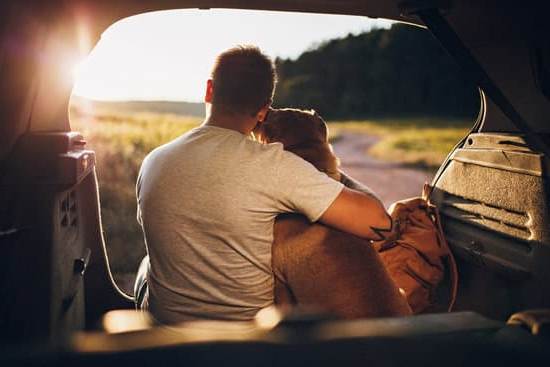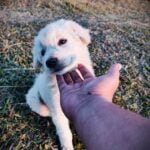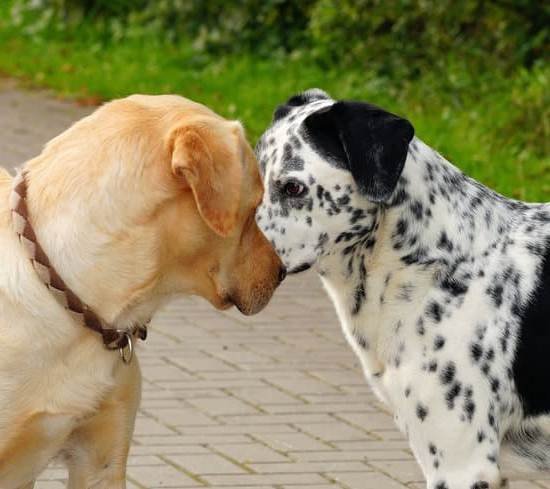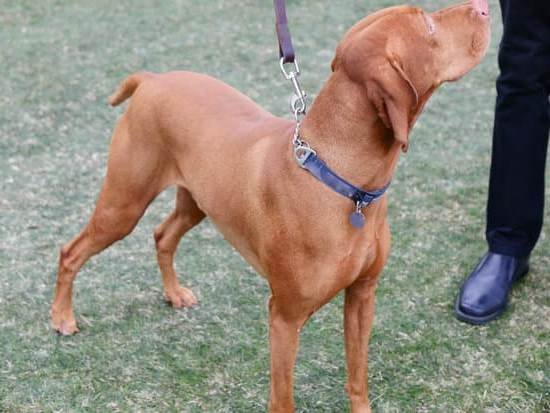Wolf dogs, also known as wolf-dog hybrids, are unique and fascinating creatures that possess a combination of characteristics from domestic dogs and wolves. These hybrid animals can be challenging to care for due to their strong instincts and wild heritage. Understanding the characteristics of wolf dogs is crucial when it comes to potty training them effectively.
One of the most important aspects of owning a wolf dog is grasping their behavior traits. Wolf dogs exhibit a wide range of behaviors that stem from their wolf ancestry, such as high intelligence, independence, and a strong prey drive. These traits can make potty training more challenging than with regular domestic dogs, but with patience and the right approach, it is possible to successfully train them.
Potty training is a vital aspect of responsible pet ownership, especially when it comes to wolf dogs. Teaching them appropriate elimination habits not only ensures a clean living environment but also establishes boundaries and reinforces the bond between owner and pet. In the following sections, we will delve into the importance of proper potty training for wolf dogs and provide valuable tips on how to achieve success in this essential aspect of owning one of these unique animals.
Understanding Wolf Dog Behavior
Wolf dogs are unique animals that possess a blend of wolf and dog characteristics. Understanding their behavior is crucial when it comes to potty training. Wolf dogs have strong instincts, high energy levels, and can be quite independent. This combination of traits can make potty training a bit more challenging compared to regular domestic dogs.
To effectively potty train your wolf dog, it’s important to recognize that they may have a stronger prey drive, territorial instincts, and a tendency to mark their territory. These behaviors are deeply ingrained in them due to their wolf heritage. Being aware of these tendencies will help you tailor your training methods accordingly.
When learning how to potty train a wolf dog, it’s essential to utilize positive reinforcement techniques. This means rewarding your wolf dog with treats, praise, or playtime whenever they exhibit desired bathroom behaviors such as going outside to eliminate. Since wolf dogs are intelligent animals, they respond well to positive reinforcement and will quickly learn what is expected of them.
To further assist in understanding the behavior of wolf dogs during potty training, here are some key points:
- Wolf dogs may be more prone to marking their territory indoors if not properly trained
- They have a strong need for routine and consistency in their daily lives
- Keeping a close eye on your wolf dog’s body language can help you anticipate when they need to go outside
By taking the time to understand the unique behavior of wolf dogs and implementing appropriate training methods, you can successfully potty train your furry companion with patience and consistency.
Importance of Proper Potty Training for Wolf Dogs
Wolf dogs are unique and wonderful companions, but they also come with their own set of challenges, especially when it comes to potty training. Due to their wild instincts and characteristics, potty training a wolf dog requires patience, consistency, and understanding of their behavior. However, with the right techniques and approach, you can successfully teach your wolf dog where to do their business.
To effectively potty train a wolf dog, it is crucial to understand that these animals have a strong sense of hierarchy and territory. Establishing yourself as the pack leader is essential in this process. By showing them that you are in charge and setting clear boundaries, your wolf dog will be more likely to follow your lead in terms of where they should eliminate.
Here are some key strategies on how to potty train a wolf dog:
- Set up a designated potty area: Choose a specific spot outdoors where you want your wolf dog to relieve themselves. Consistently take them to this area after meals or naps.
- Use positive reinforcement: Reward your wolf dog with treats or praise when they go potty in the right place. This will help reinforce good behavior.
- Establish a routine: Stick to a consistent feeding schedule and bathroom breaks to help regulate your wolf dog’s bathroom habits.
Implementing these techniques along with patience and consistency will help you successfully potty train your beloved wolf dog. Remember that every animal is different, so be prepared for some trial and error along the way. By staying committed and understanding their unique nature, you’ll be able to celebrate success as your furry friend learns where to go potty.
Preparation for Potty Training a Wolf Dog
Wolf dogs are unique creatures that possess a mix of wild wolf-like traits and domestic dog characteristics. They often have strong instincts and behaviors that differentiate them from typical domesticated dogs. This makes it essential for owners to understand the specific needs of wolf dogs, especially when it comes to potty training. Knowing how to potty train a wolf dog requires a deep comprehension of their nature and behavior.
One crucial aspect of preparing for potty training a wolf dog is creating a conducive environment for learning. This can involve setting up a designated bathroom area outdoors, providing ample opportunities for the wolf dog to relieve themselves, and establishing a consistent routine. Additionally, it is vital to remove any potential distractions or triggers that may hinder the potty training process.
Furthermore, proper preparation for potty training also involves understanding the individual personality and characteristics of your wolf dog. Some may respond well to certain training methods while others may require a different approach. By taking the time to observe and interact with your wolf dog, you can tailor your potty training strategies to suit their needs effectively.
| Key Points | Details |
|---|---|
| Environment | Create a suitable bathroom area outdoors. |
| Routine | Establish a consistent schedule for potty breaks. |
| Individuality | Observe your wolf dog’s behavior to customize training methods. |
Positive Reinforcement Techniques for Potty Training
When it comes to potty training a wolf dog, positive reinforcement techniques can be incredibly effective in helping them understand where they should eliminate. Due to their strong pack mentality and loyalty, wolf dogs respond well to praise and rewards for good behavior.
One of the key methods in positive reinforcement is using treats as a reward when your wolf dog successfully eliminates in the designated potty area. Choose high-value treats that your wolf dog finds especially enticing to make the reward more motivating. Additionally, offering verbal praise and physical affection such as gentle pets or belly rubs can further reinforce the desired behavior.
Consistency is crucial when implementing positive reinforcement techniques for potty training your wolf dog. Establish a regular routine for potty breaks and take your wolf dog to the designated spot consistently after meals, naps, playtime, and waking up in the morning. By being consistent with your approach, your wolf dog will begin to associate the correct elimination behavior with positive outcomes.
In addition to treats and praise, another effective positive reinforcement technique for potty training a wolf dog is clicker training. This method involves using a clicker device that makes a distinct sound followed by immediately giving a treat when your wolf dog eliminates in the right spot.
The clicker helps mark the precise moment of correct behavior, making it easier for your wolf dog to understand what they are being rewarded for. With patience, consistency, and positive reinforcement techniques like these, you can successfully potty train your beloved wolf dog.
| Positive Reinforcement Techniques | Potty Training Success |
|---|---|
| Use high-value treats as rewards | Helps in motivating behavior |
| Establish consistency in routine | Associates correct behavior with positive outcomes |
| Implement clicker training method | Makes it easier for understanding rewarding behavior |
Crate Training for Wolf Dogs
Introduction to Crate Training
Crate training is a valuable tool when it comes to potty training your wolf dog. A crate provides a safe and secure space for your wolf dog when you cannot supervise them, helping to prevent accidents in the house. Additionally, wolves are den animals by nature, so a crate can simulate that den-like environment, making your wolf dog feel more comfortable.
Choosing the Right Crate
When selecting a crate for your wolf dog, make sure it is large enough for them to stand up, turn around, and lie down comfortably. It’s important not to get a crate that is too big as this may encourage your wolf dog to use one end as a bathroom area. Opt for a durable and sturdy crate that can withstand the strength and potential chewing tendencies of a wolf dog.
Introducing Your Wolf Dog to the Crate
To acclimate your wolf dog to their new crate, start by placing treats or toys inside to entice them to enter voluntarily. Allow them to explore the crate at their own pace without pressure. Once they are comfortable entering and exiting the crate willingly, begin feeding them their meals inside the crate with the door open.
Gradually increase the time they spend inside with the door closed until they become accustomed to being confined for longer periods. Remember always to keep the experience positive and rewarding for your wolf dog while using the crate as a helpful tool in potty training.
Consistency in Potty Training
Consistency is key when it comes to potty training a wolf dog. Establishing a routine and sticking to it will help your wolf dog understand where and when they are supposed to go potty. Choose specific times throughout the day for bathroom breaks, such as first thing in the morning, after meals, and before bedtime. By being consistent with these potty breaks, you can help prevent accidents in the house.
In addition to establishing a routine, consistency also applies to using the same commands and cues during potty training. Whether you use phrases like “go potty” or “do your business,” make sure to consistently use the same words each time you take your wolf dog outside. This will help them associate the command with going potty and reinforce good behavior.
Another aspect of consistency in potty training a wolf dog is sticking to a designated bathroom area. Decide on a specific spot in your yard or outdoors where you want your wolf dog to go potty, and always take them to that location. The scent markers left behind will also help reinforce where they are supposed to eliminate.
Consistently taking them to the same spot will create a familiar environment for them to do their business. Remember that patience and consistency are essential when teaching your wolf dog where it’s appropriate to go potty.
Dealing With Challenges in Potty Training a Wolf Dog
Challenges in Potty Training a Wolf Dog
Potty training a wolf dog can be a challenging task, as they have strong instincts and may exhibit behavior that differs from domesticated dogs. Some challenges you may encounter include their independence, high energy levels, and natural inclination to mark their territory. Understanding these challenges is crucial in effectively potty training your wolf dog.
Patience and Persistence
When faced with challenges in potty training your wolf dog, it is essential to remain patient and persistent. Due to their strong-willed nature, they may not immediately grasp the concept of potty training. Consistency is key, ensuring you stick to the same routine and positive reinforcement techniques. Encouraging good behavior and providing rewards when they eliminate in the designated area will help reinforce desired habits.
Professional Assistance
If you are struggling with potty training your wolf dog despite your best efforts, seeking professional assistance can be beneficial. Trainers experienced in working with exotic or high-energy breeds like wolf dogs can provide valuable insights and guidance on how to tailor your approach for success. They can offer personalized strategies based on your wolf dog’s unique personality and behavior traits, making the potty training process more manageable.
By addressing challenges in potty training head-on with patience, persistence, and professional support when needed, you can overcome obstacles and set your wolf dog up for success in developing proper bathroom habits. Remember that each wolf dog is unique, so finding the right approach that works for your furry companion is key to achieving effective potty training results.
Celebrate small victories along the way and stay consistent in your methods to help your wolf dog successfully learn where to go potty.
Celebrating Success and Milestones in Potty Training Your Wolf Dog
Potty training a wolf dog may come with its challenges, but celebrating success and milestones along the way is crucial in reinforcing positive behavior. From understanding the characteristics of wolf dogs to implementing positive reinforcement techniques, every step taken towards successful potty training should be acknowledged and celebrated. Consistency is key when it comes to training a wolf dog, and staying committed to the process will eventually lead to desired results.
One of the most effective ways to celebrate success in potty training your wolf dog is through positive reinforcement. Whether it’s giving treats, praise, or even special playtime as a reward for going potty in the designated area, these acts of encouragement can greatly motivate your furry companion. Remember to remain patient and understanding throughout the training process, as every small achievement should be recognized as a step in the right direction.
As you navigate through the challenges and triumphs of potty training your wolf dog, always remember that each milestone achieved signifies progress towards a well-behaved pet. By staying dedicated to proper preparation, consistent training methods, and positive reinforcement techniques, you will find yourself closer to having a fully potty-trained wolf dog.
Ultimately, the bond strengthened between you and your canine friend during this journey will be worth all the effort put into learning how to potty train a wolf dog.
Frequently Asked Questions
Can Wolfdogs Be House Trained?
Wolfdogs can be house trained, but it requires consistency, patience, and understanding of their unique characteristics. They are intelligent animals but also have strong instincts that need to be taken into consideration during training.
How Do You Discipline a Wolf Dog?
Disciplining a wolf dog requires a different approach compared to traditional dog training methods. Positive reinforcement, consistency, and establishing yourself as the pack leader are key. Punishment-based methods can often lead to aggression or fearfulness in wolfdogs.
Is It Hard to Raise a Wolf Dog?
Raising a wolf dog can be challenging due to their wild ancestry and complex needs. They require plenty of mental and physical stimulation, socialization from an early age, and a secure environment. Proper training and understanding of their behavior is essential for a successful relationship with a wolfdog.

Welcome to the blog! I am a professional dog trainer and have been working with dogs for many years. In this blog, I will be discussing various topics related to dog training, including tips, tricks, and advice. I hope you find this information helpful and informative. Thanks for reading!





